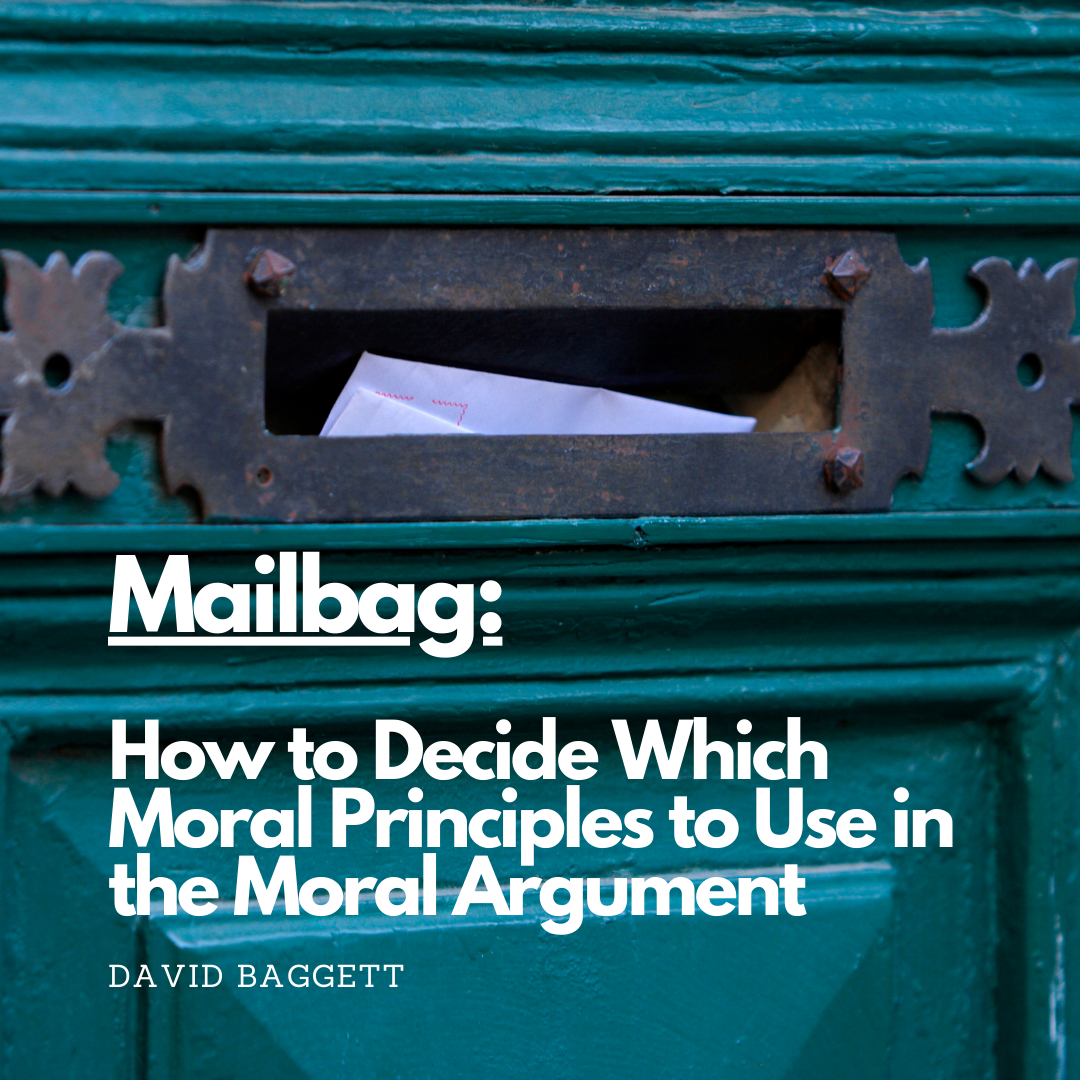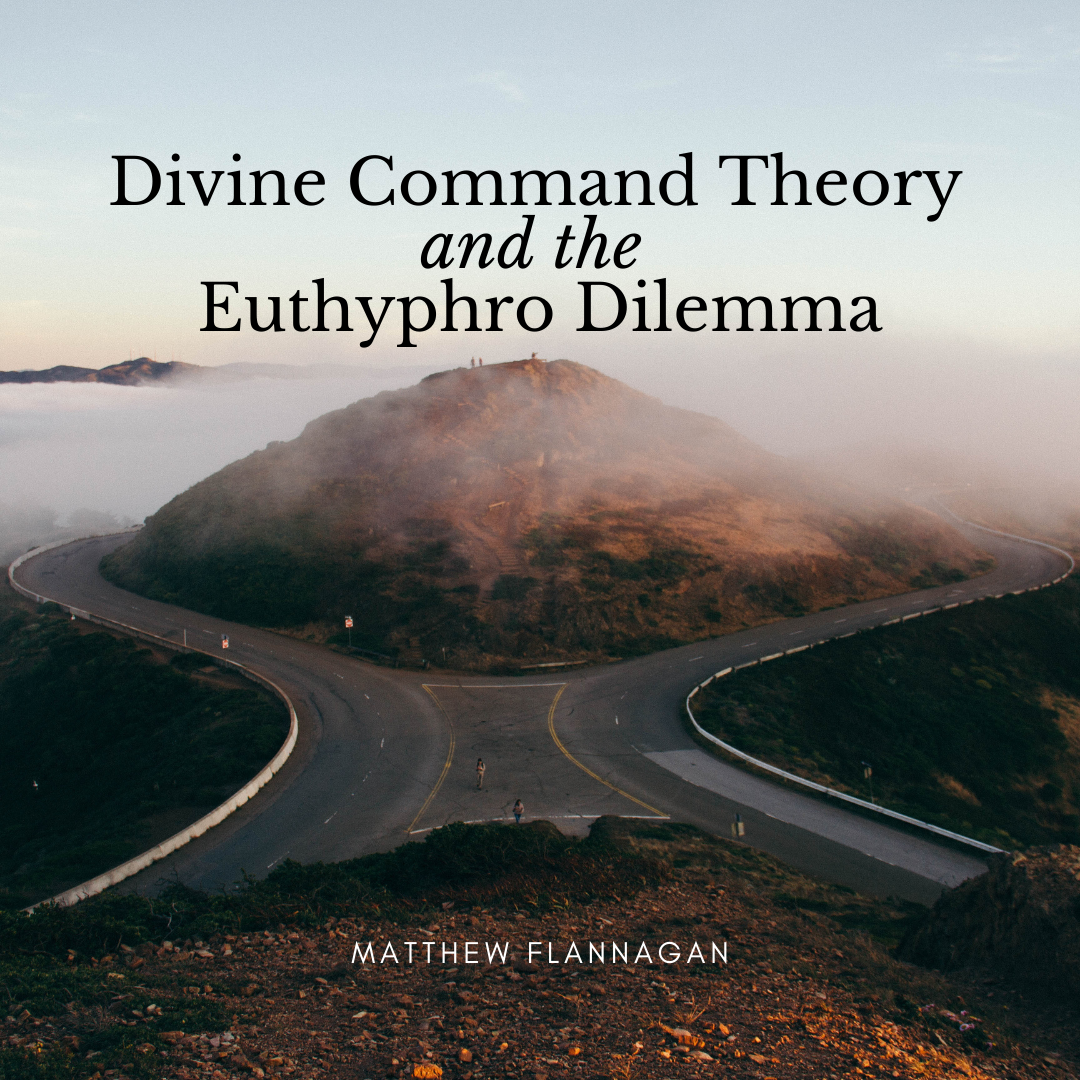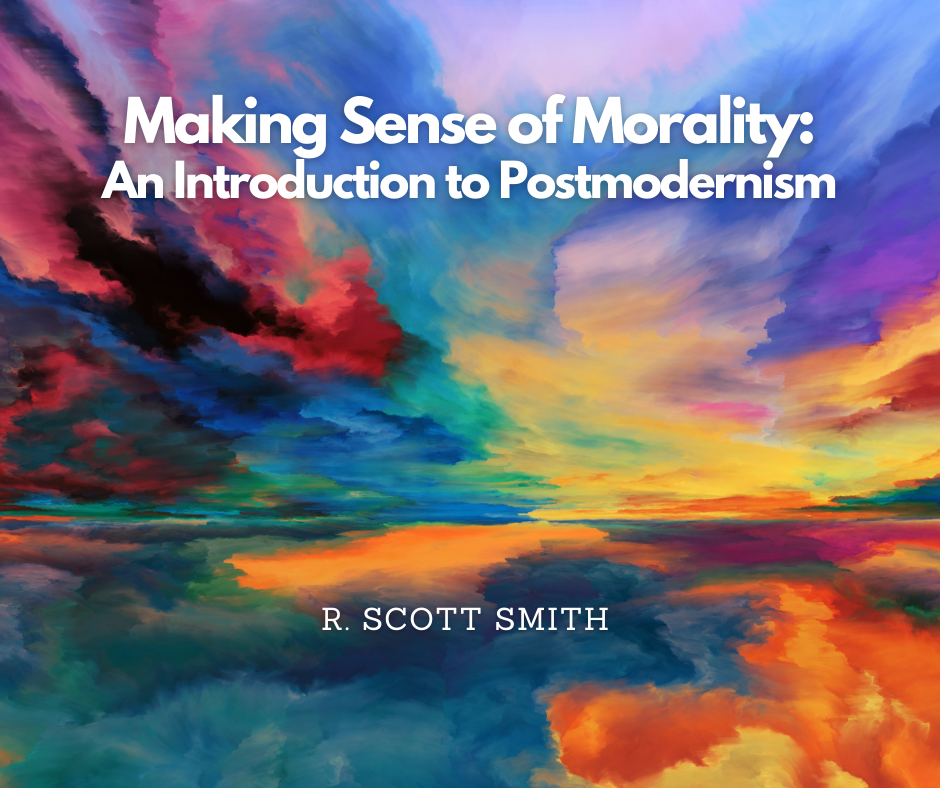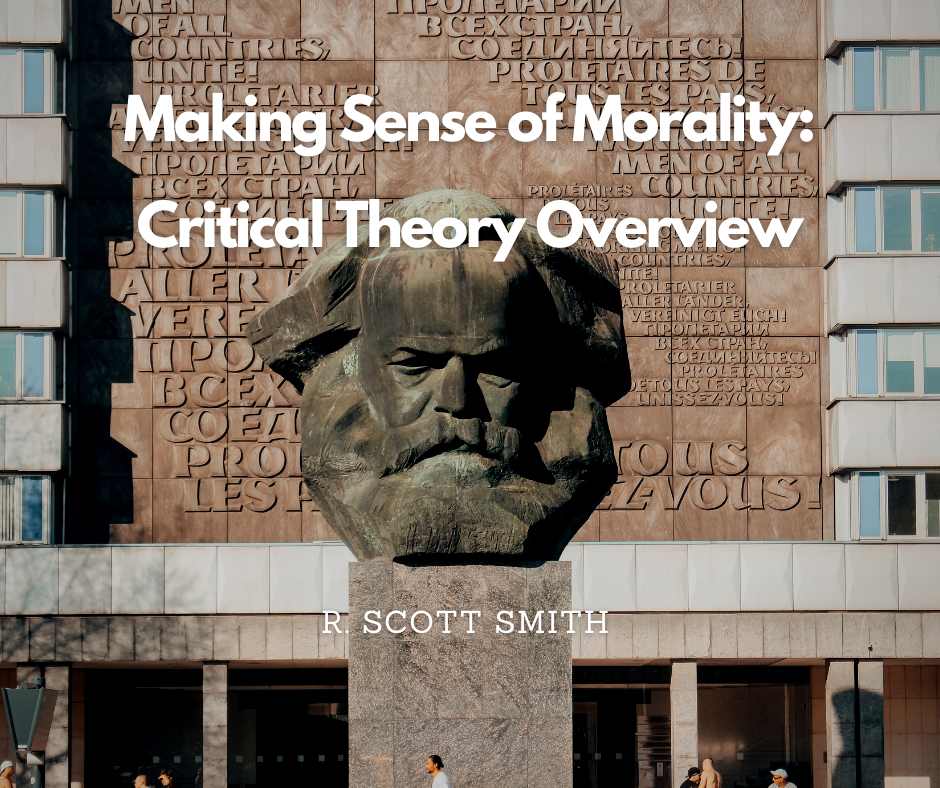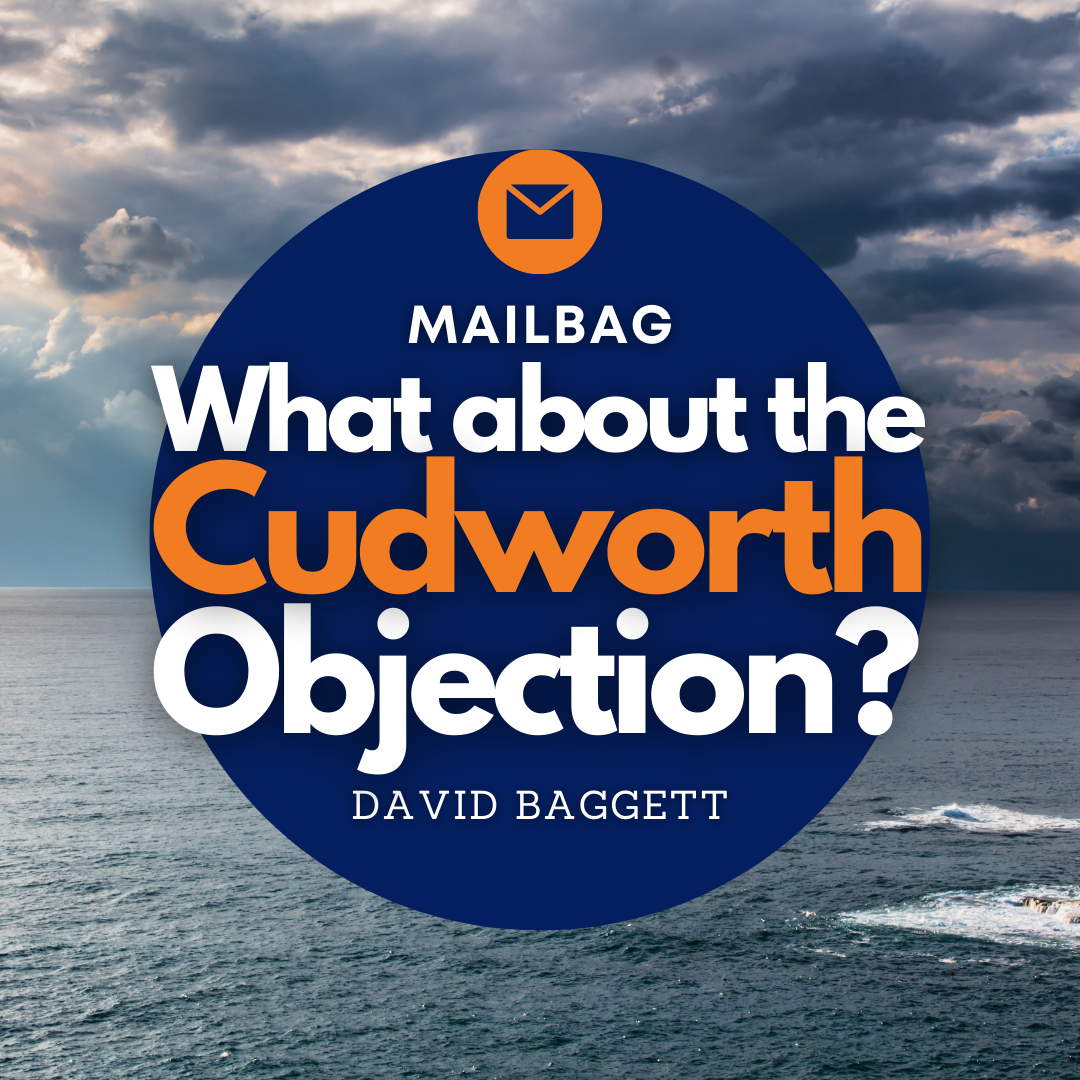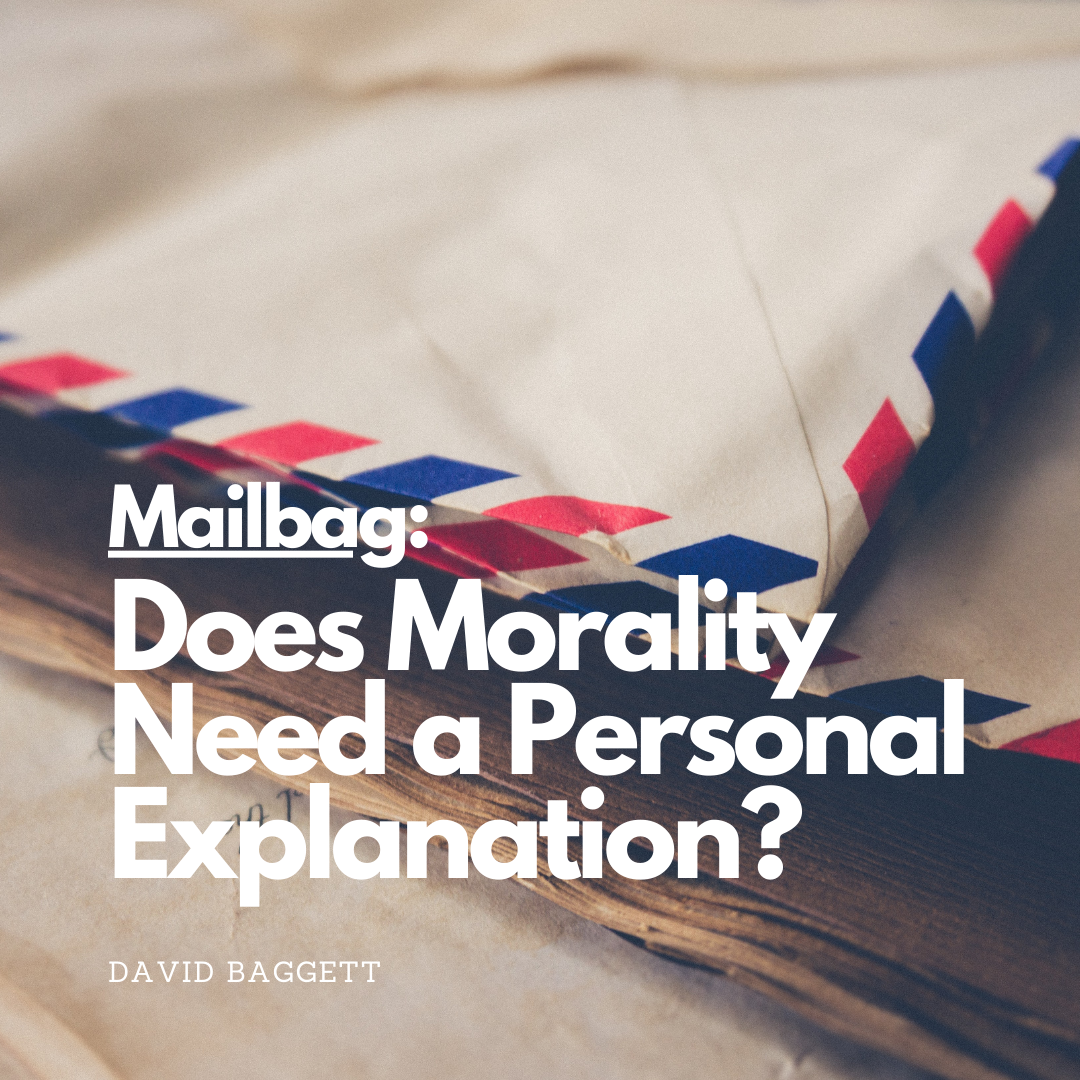Mailbag: How to Decide Which Moral Principles to Use in the Moral Argument
/Dear Dr. Baggett,
What underlying principle determines which moral principles should be accepted by the “gods”? Every religion is different and wouldn’t one have to assume that all religions share a moral common ground? It seems to me that one has to first specify their metaphysics (perhaps even their epistemology) before arguing from morality.
Thank you for taking the time out of your day to read this email. God bless!
In Christ,
Matthew
Hi Matthew,
Thanks for the note.
This sounds like a question of first principles. Here I tend think morality has a sort of primacy. A German philosopher named Hermann Lotze affirmed a principle that our metaphysics is rooted in morality. This is rather different from what often gets affirmed today—start with metaphysics and epistemology, and then fit everything else in and around those disciplines. Lotze thought it okay to start with morality, sensing that it is somehow fundamental. I'm inclined to agree. Following Mark Linville, I call this "Lotze's Dictum." I see something like such a principle at the heart of the moral apologetics enterprise.
Then, following Robert Adams, I tend to think, based on basic credulity principles and such, that we are entitled to think that our moral convictions of the deepest ingression can be taken as generally reliable. Without some such assumption, there's not much hope of constructing anything like a moral argument. But again, if morality is considered for principled reasons a real indicator of reality, and evidentially significant in enabling us to figure out aspects of the world, these starting points seem eminently reasonable to me. If someone demurs, they're perfectly entitled to, of course, but I don't find there to be compelling reasons for me to overly concerned with their skepticism on the matter. I simply don't think I'm surer of just about anything than I am that, say, torturing kids for fun is wrong. So to me this can function axiomatically. I don't have apodictic certainty, but such an aim is unrealistically high. As I said in class, putting it this way makes it seem like affirming moral objectivism is nothing more than an intuitive matter, but I think there's a lot more to it than that. That's more appearance than reality. But for a starting point, it's not bad.
Up until now religion and God haven't played any part in the conversation, you will note. We're just talking about a basic axiomatic moral principle or two. Once one becomes convinced of something like moral realism, the question then becomes, what worldview best accounts for the existence of objective moral facts (again, if such there be)? Now, there are two matters here: the modality of these truths, and the content of these truths. Some might simply wish to run a moral argument based on moral realism--the modality of these truths--their necessary truth or existence, for example. Others might wish to delve into the content.
As for me, I stay away from the content except a few general claims. I like the example of torturing kids for fun. It's not particularly controversial. It's something I suspect most every religion would agree on. And most every atheist. It's a likely contender for a synthetic necessary moral truth if there is one, something we're more sure of than most anything that could challenge it, perhaps even something that's properly basic (though it needn't be for the moral argument to get off the ground). In other words, its epistemic credentials are pretty impeccable, as far as I'm concerned.
At this point if one insists we must first lay out the metaphysics of such a truth before arguing from morality, I think I'd say I don't think so. The self-evidence of the proposition in question makes it such that it's more likely to be argued from than to. The moral argument is an effort to get at the metaphysics behind such a moral truth. Getting to the metaphysics is what the moral argument tries to do. If something like an Anselmian God provides the best explanation of such a moral truth, then I consider myself altogether justified and warranted to infer, at least tentatively, to God as the likely true explanation, which is to say, the metaphysical foundation, the ontological grounding, of such a truth.
Part of what's going on here, I think, is this: our epistemic faculties are such that we can hold our belief about child torture for fun with a high degree of assurance. This is good, since it's basically a premise in the moral argument, and the premises of an argument, if the argument is a good one, need to be strong. If you're convinced of the truth of realism, with at least this minimal content held in common across a broad array of worldviews and religious persuasions, the rest of the work the argument needs to do falls on how well theism generally (or perhaps Christianity particularly) provides the most robust explanation on offer.
When it comes to basic moral principles, I say I lean toward focusing on noncontroversial content (the vexed questions can be taken up later; this is a matter of ethical foundations)—but it's true that I also extend my four-fold approach to include matters of performance, knowledge, and rationality. But I at least start with minimal content and matters of metaphysics and epistemology—but with a high view of what morality has to say to us and a basic confidence in pre-theoretical moral convictions of a certain stripe. It has always seemed to me that we can know with great confidence the nonnegotiable truth of at least certain basic ethical principles, which is why I'm convinced they're as good a place as any to start doing natural theology. I figure if I'm wrong, well, I'm wrong, but it's where I feel good throwing my lot. People should not be sawn in two; dignity should be upheld; etc. (I'm not saying the rest of the moral argument is this obvious, but the starting point, at least, seems to be.)
This is all too brief, but in a nutshell, it gives you an idea of what I think. I encourage you to keep thinking about this stuff! I appreciate your note very much.
Blessings,
Dave B.
David Baggett is professor of philosophy and Director of the Center for Moral Apologetics at Houston Baptist University.

